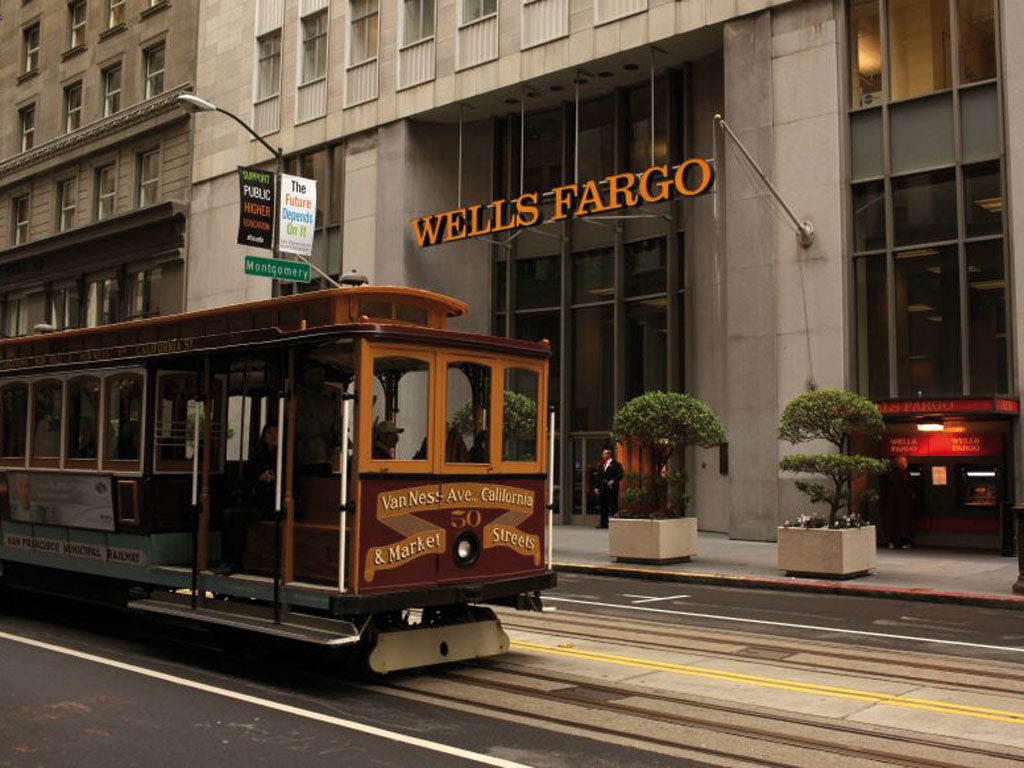Wells Fargo's £300m purchase of a new London HQ should not be seen as a post Brexit boost for London
The US retail banking giant has made a significant investment in the City of London, but it would have gone ahead regardless of the result of Britain's EU referendum and there's nothing to stop it from upping sticks down the line if conditions deteriorate

Your support helps us to tell the story
From reproductive rights to climate change to Big Tech, The Independent is on the ground when the story is developing. Whether it's investigating the financials of Elon Musk's pro-Trump PAC or producing our latest documentary, 'The A Word', which shines a light on the American women fighting for reproductive rights, we know how important it is to parse out the facts from the messaging.
At such a critical moment in US history, we need reporters on the ground. Your donation allows us to keep sending journalists to speak to both sides of the story.
The Independent is trusted by Americans across the entire political spectrum. And unlike many other quality news outlets, we choose not to lock Americans out of our reporting and analysis with paywalls. We believe quality journalism should be available to everyone, paid for by those who can afford it.
Your support makes all the difference.Well that’s a relief. US consumer banking giant Wells Fargo just spent £300m on a shiny new office near the Bank of England and the headlines hailed it as a post-Brexit boost for London.
Coming after a group of the biggest US banks got together with former Chancellor George Osborne to say that they still loved post-Brexit London, it looks like a significant move.
In reality it means nothing. Zip. Diddly squat.
The move brings staff, currently based at four different locations, together into one central hub so it makes perfect business sense. So much sense that the bank had planned to do it regardless of the result of the EU referendum.
The only impact that has had on the plan is that it has made the building’s purchase quite a bit cheaper for Wells Fargo because of the collapse in the value of sterling against the dollar.
Brexiters will still stamp their feet and point to it as evidence that London is still open for business. But it was always going to be open for business. The things that made it attractive to big banks didn’t disappear overnight as a result of Britain doing something painfully stupid.
London still has a comforting familiarity to America’s banking titans. Its legal system is a known quantity. The system of regulation is seen as pretty good. Andrew Bailey’s appointment to run the Financial Conduct Authority helps there. The bankers I speak to don’t always agree with him but they do respect him. Corporate tax rates are low.
There is also, at least while the UK’s doors are open, the so-called “cluster” effect. Because there are so many financial institutions headquartered in the Capital there is a sizeable pool of highly qualified staff. Lost the head of your East Asia trading desk? Not a problem. Call the headhunters and they’ll find you a replacement in a matter of days. That’s if you haven’t lined one up yourself.
I could go on. Suffice to say that London will still attract business from banks. But don’t kid yourself, there will still be a drip feed of jobs moving across to the continent in the coming months. It has already started and it will continue, particularly if the pan-European passport that allows London based banks to sell their products across Europe disappears.
The City will survive its loss, although it will be a little leaner, and lit will look a bit different. But remember too that the City is just one part of the UK economy. A lot of companies in other sectors used to come here because of the UK’s access to the single market. A lot of companies will now not come here until the position on that is clearer. Watch the unemployment figures over the coming months if you don’t believe me.
It’s also worth remembering that Wells Fargo is a bank that reported second quarter earnings of $5.56bn (£4.2bn). It has spent a lot of money on its shiny new European HQ, but were it to decide that it doesn’t like the way things are going here it could sell up. The losses it would have to write off would represent nothing more than a rounding error and Wall Street’s analysts would barely even notice.
Join our commenting forum
Join thought-provoking conversations, follow other Independent readers and see their replies
Comments